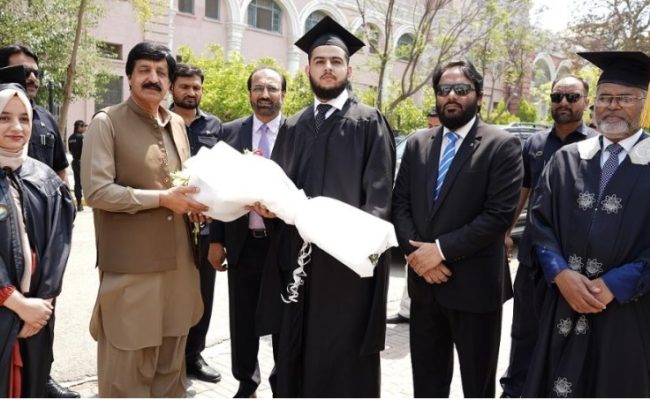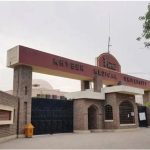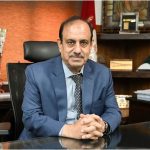The UET Lahore convocation 2025 marked a proud milestone for the University of Engineering and Technology, Lahore, as 2,676 students from the main and sub-campuses were awarded degrees during its 31st convocation ceremony. The event reflected the institution’s commitment to academic excellence and national development. At the heart of the UET Lahore convocation 2025 was recognition for outstanding performance — 71 gold medals were awarded to 46 exceptional graduates, with top honors going to Electrical Engineer Rehan Qasim and Chemical Engineer Ayesha Khurram, each securing six gold medals. The UET Lahore convocation 2025 was a celebration of talent, determination, and future promise.
The ceremony was presided over by Chancellor UET and Governor of Punjab, Sardar Saleem Haider, who praised the university’s contributions to national growth. In his address, Vice-Chancellor Dr Shahid Munir highlighted the rising academic and research achievements of the university, linking them to strategic future goals. He reminded the graduates that they are now ambassadors of their alma mater, having passed through one of the country’s most rigorous engineering programs. The UET Lahore convocation 2025 was not just about degrees but also about responsibility, as speakers repeatedly stressed the role of engineers in shaping Pakistan’s development. The success of the UET Lahore convocation 2025 also served as an endorsement of UET’s merit-based leadership and growing international rankings.
Governor Sardar Saleem Haider urged graduates of the UET Lahore convocation 2025 to become agents of change by addressing key national challenges like poverty, water scarcity, and climate-related disasters. He stressed the importance of the IT sector in bringing economic growth and innovation, calling upon engineers to contribute beyond the classroom. The UET Lahore convocation 2025 concluded with an inspiring call to action — for graduates to stand with the government in finding sustainable solutions and making Pakistan self-reliant. The audience included deans, faculty heads, syndicate members, administrative officers, and proud families who witnessed the start of a new chapter for thousands of future engineers.







